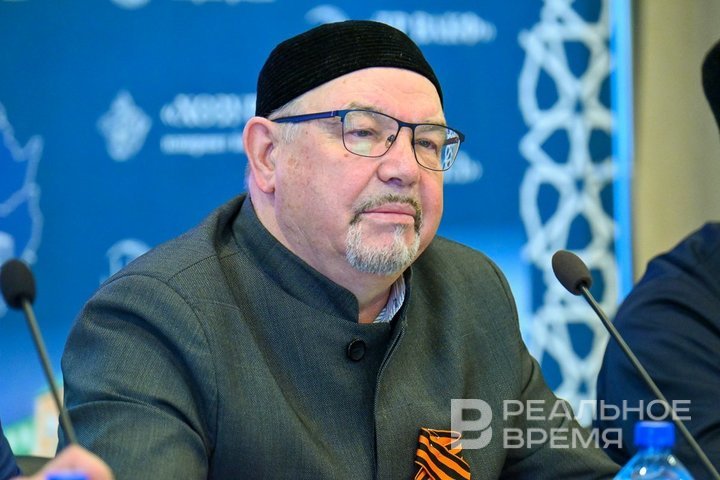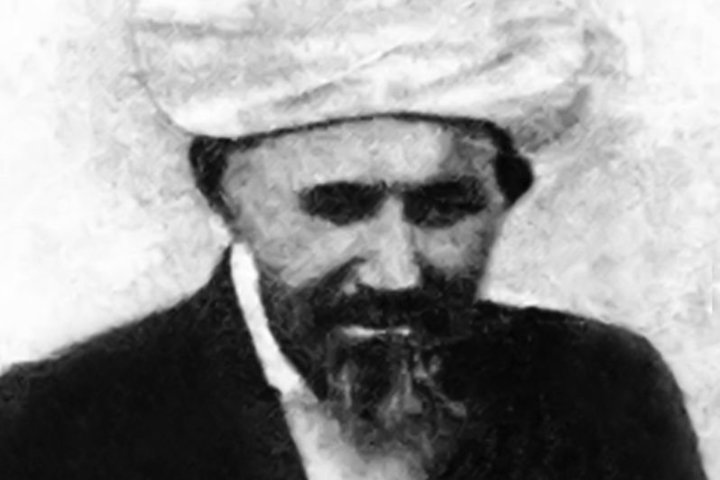‘In the name of Islam and the Motherland, call on all Muslim brothers and sisters to save our homeland from the enemy’
The Muslim Spiritual Board told how the Ummah fought fascism

The Great Patriotic War had a tremendous impact on the attitude towards Islam in the USSR. This conclusion could be reached at the All-Russian conference “Tatars-participants and veterans of the Great Patriotic War and the processes of Re-Islamisation (the second half of the 20th century)", which was held in the Muslim Spiritual Board of the Republic of Tatarstan on the eve of Victory Day. The speakers pointed out that the phrase “holy war” accurately describes this phenomenon — representatives of many faiths fought side by side on the fronts at that time.
The second largest
The conference was organised by the Centre for Islamic Studies of the Academy of Sciences of the Republic of Tatarstan and the MSB of the Republic of Tatarstan together with the Institute of Language, Literature and Art named after G.I. Ibragimov of the Academy of Sciences of the Republic of Tatarstan and the Muhammadiyah madrasah.
“This conference speaks about important issues for the Muslim community," said the rector of the Russian Islamic University, Rafik Mukhametshin. “Now we are moving from a unipolar world to a multipolar one. This is a new strategic direction for Russia.”
And the head of the executive committee of the World Congress of Tatars, Danis Shakirov, reprimanded that only in one madrasah, named after the 1000th anniversary of the adoption of Islam, teaching is conducted in the Tatar language (they say, in this sense we have somewhere to move), quoted the Prophet Muhammad (peace and blessings of Allah be upon him): “Love for the Motherland comes from faith.”
“The Tatar-Muslim Ummah was true to this statement. It was the second largest among those who participated in the Great Patriotic War. In the 1980s, veterans contributed to the national religious movement.

Already on June 27, the fight against the enemy was talked about in mosques
Vyacheslav Abdullin, a senior researcher at the Bulgarian Islamic Academy and the Moscow Islamic Institute, pointed out that already on June 27, that is, on the first Friday after the outbreak of the war, sermons on the fight against the enemy were heard in many mosques (open and abandoned). Despite the harsh repressive policy against Muslims, Abdullin noted: “But here they were united with the leadership of the country.”
Let us remind that before the war there was a massive closure of mosques. As the director of the Nizhnetatmayn secondary school of the Aksubayevsky district, Rafik Nasyrov, said, they were closed either because the building was recognised as requiring major repairs, or for the school and the club to locate there. According to historians, sometimes this decision was made unanimously.
On July 18, 1941, Mufti Gabdrakhman Rasulev addressed the Soviet Muslims: “The enemy's attack has created a threat to the happiness and life of our dear Homeland, our brothers and sisters, our children. Therefore, the Central Muslim Spiritual Board calls on everyone to defend the Fatherland from the enemy. In the name of Islam and the Motherland, call on all Muslim brothers and sisters to save our homeland from the enemy. Pray in your mosques and prayer houses for the victory of the Red Army over the enemy.”
Interestingly, one of Rasulev's appeals became available to historians because of a denunciation — in Mordovia, one citizen informed the authorities that he was being read in mosques without permission. It is also known that in March 1943 Rasulev wrote a letter to Stalin and contributed 50 thousand rubles for the construction of a tank column. As a result, 10 million rubles were collected, later 243 million rubles were collected in the Turkmen SSR, 365 million rubles in the Uzbek SSR, and 1 billion rubles each in Kazakhstan and Tajikistan.

Liberalising attitudes towards Islam in the 1940s
Professor of the Kazan branch of the Russian State University of Justice Aidar Khabutdinov recalled one of the episodes when, already in the 1980s, the same Muslim veterans, recognised as heroes by the state, fought for their rights: he read out memories of how old people went to the first secretary of the Naberezhnye Chelny City Committee of the CPSU with a request to give them the opportunity to open a mosque, and they were told that Naberezhnye Chelny was a Komsomol city: “We will drive you out to the villages.” The old men tried to build a mosque in the cemetery, but the construction was not allowed. The activists were threatened with being deprived of their pensions and sent for 15 days.

Ilnara Khanipova, the head of the Department of Modern History at the Marjani Institute of History, together with Ildar Karimov, a senior researcher at the Institute, noted how much more liberal the authorities became towards Islam in the 1940s. The MSB of Central Asia and Kazakhstan was established in 1943. The MSB of the North Caucasus and the MSB of Transcaucasia — in 1944. There was a return of shrines, some of the repressed, and the resolution of zakyat at the official level. The soldiers were allowed to pray. Religious holidays were returned. In 1944, the practice of Hajj returned (after the re-prohibition, it was allowed in 1953). In the late 1940s, there were about 500 mosques operating in the country. At the same time, the social order was much higher, as evidenced by a secret note from Ivan Polyansky, the chairman of the Council for Religious Cults under the Council of Ministers of the USSR, to Molotov.
The materials of the conference are planned to be published — and it would be nice to talk about Muslims participating in the Great Patriotic War in schools. After all, Abdullin is especially depressed by that the mass participation of Muslims in the fight against fascism — both at the front and in the rear — is still not reflected in the textbooks that children study.